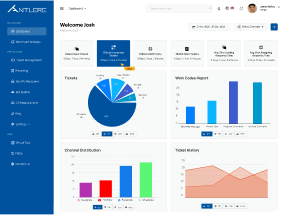Mastering the Movement: Why Supply Chain BPO is Your Next Strategic Move
What exactly is Business Process Outsourcing (BPO) in the context of logistics?
The logistics of ensuring that raw material flow to end consumers is not easy in the current complicated global economy because of the unpredictable fuel prices, and also due to unforeseen customs delays. Supply chain BPO (Business Process Outsourcing) refers to the tactical outsourcing of the non-core, but crucial, logistics and administrative processes to external third-party companies.
This enables businesses to outsource a large amount of repetitive and document-intensive work, e.g. document processing and financial reconciliation, and enable internal teams to concentrate on core strategic activities, e.g. procurement and innovation.
What is supply chain BPO, and how does it guarantee greater accuracy and efficiency?
Supply chain BPO involves outsourcing specialized administrative and operational logistics tasks. These activities include simple data capturing duties up to sophisticated regulation control. Incorporating the services of special BPO vendors, the companies will obtain the immediate access to the professional personnel and the most sophisticated means of automatics, which would guarantee them a certain degree of accuracy compared to the manual in-house operations.

One example is proper and prompt entry of logistics data; by outsourcing this operation, the number of human mistakes decreases the number of costly delays, customs fines, or inventory imbalances is reduced significantly.
How does outsourcing specific tasks translate into tangible cost reduction?
Cost reduction is one of the most compelling reasons to explore logistics process outsourcing. By outsourcing a transaction-focused company with high volumes of transactions, a company does not need to bear the overhead of recruiting, training, and retaining a full in-house staff that is only required on a fluctuating basis.
Particularly, automated systems, and dedicated teams oversee such tasks as freight invoice processing and can process large volumes at a lower unit cost. This is a gain in efficiency as well as the fact that it is possible to increase or decrease resources within seconds so that the savings are substantial as opposed to having fixed internal headcounts.
What role does bpo finance play in optimizing the entire supply chain?
The connection between the physical supply chain and a company’s financial health is inseparable. BPO finance services bridge this gap by handling critical accounting processes directly tied to logistics operations. This often includes managing vendor payments, conducting expense audits, and reconciling ledger entries resulting from accurate freight invoice processing.
When bpo finance functions are integrated with supply chain BPO operations, it ensures that every dollar spent on moving goods is accurately tracked, recorded, and optimized for cash flow, moving the finance team from a cost center to a strategic partner.
Which technological advancements are redefining modern logistics process outsourcing standards?
The contemporary logistics process of outsourcing is technology-intensive to provide the most crucial value proposition of speed and accuracy. Mundane tasks have been changed with the adoption of AI and Robotic Process Automation (RPA).
As an example, sophisticated automation has made it possible to perform ridiculously intricate freight invoice processing validation checks in real-time that identify duplicated charges or rate discrepancies many times before such failure is detected by a human operator.

Furthermore, integrated logistics analytics, warehouse management BPO, and reverse logistics outsourcing empower companies to make data-backed decisions that boost efficiency across the entire supply chain.
Why is integrating supply chain BPO key to future competitive advantage?
The future belongs to businesses that can maintain agility, visibility, and efficiency while keeping costs low. Integrating supply chain BPO is now a non-negotiable step toward achieving that goal. Through logistics BPO partnerships, companies gain scalability, advanced automation, and access to expertise in areas such as transportation management BPO and third-party logistics support.
Organizational leaders are relieved of the burden of being innovative, expanding their markets, and enhancing customer experience by tactfully assigning resource-intensive but complex tasks. The supply chain BPO takes on the role of a driver of long-term competitive advantage due to supply chain visibility solutions and real-time analytics.









